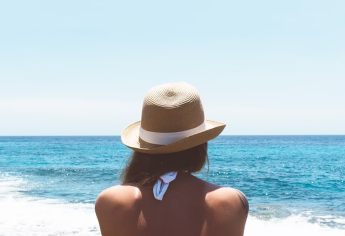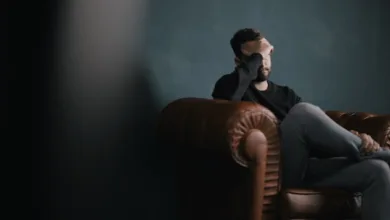Health Tips: The Importance Of Sun Protection

The sun can be a great source of vitamin D and other health benefits, but it also has the potential to cause long-term damage if we aren’t careful. If you want to make sure you’re getting what you need from the sun without risking too much, below are some tips on how to best enjoy this natural wonder.

Stay In Shaded Areas As Much As Possible
If you don’t have a shaded area, then use an umbrella or hat. Remember that the sun is stronger at higher altitudes and near water surfaces, so these areas should be avoided as much as possible. In addition to being exposed for too long, remember that it’s not just the summer months when you need protection from the harmful effects of ultraviolet rays – they can damage your skin all year round. In this case, it’s best to wear a wide-brimmed hat or get retractable awnings in Miami, so you can stay out of the sun and protect your skin. The benefits of skin protection are cumulative, too – the damage caused by ultraviolet rays builds up over time.
If you are in New Jersey, check out awning companies in NJ, too.
Protect Your Skin By Wearing Sunscreen
When applying sunscreen, you need to understand that not all sunscreens are the same. After consulting with your dermatologist or another skincare professional, they can advise correct usage and explain what ingredients in which product will be most beneficial for your specific needs. The last thing you want is a nasty burn (or worse) because of faulty protection! Sunscreen is an oil-based cream that will protect your skin from the harmful effects of sun rays. It can be purchased at any grocery store or pharmacy and usually costs several dollars per bottle. However, sunscreen should not only be used during the summer months but also all year round if you plan on spending long periods in outdoor areas with direct sunlight exposure such as beaches, parks, etc.
One important tip for wearing sunscreen is to always put it on before going outside so that it has time to dry completely before coming into contact with UV radiation. Another helpful piece of advice would be to remember to reapply every few hours when engaging in activities outdoors like swimming, tennis matches, or even just walking back home after work. Sunscreen should also be reapplied after sweating or swimming because it will wear off, just like regular body lotion. Other helpful hints include avoiding direct contact with clothing while wearing sunscreen since this can cause stains on your shirt and avoiding applying too much cream at once, which can make you look ‘shiny’ in photos.
Wear Sunglasses That Block Out UV Rays
Sunglasses are a great way to protect your eyes from sun damage. They can be purchased at any sunglasses store, but they should have the words “UV 400” printed on them, which means that they block out 99% of UV radiation and provide optimal eye protection. You want to avoid wearing cheap sunglasses as these will not offer enough protection for your eyes since they do not filter all the harmful rays you need to worry about. Why is it important to wear sunglasses? The main reason is that sunlight contains ultraviolet radiation (UVR) which causes several different issues with your eyes such as cataracts, burns around the retina, and macular degeneration among other things. All of these conditions could end up causing blindness if left untreated over time.
Sunglasses with darker or reflective lenses do not necessarily provide superior protection. The tint or color of the lenses does not determine the level of UV protection they offer. Although mirrored lenses can reduce incoming light, it’s important to note that unless the label explicitly states that sunglasses offer 100% UV protection, you shouldn’t assume the lenses provide adequate protection.
It is also important to wear sunglasses since they help you see better by reducing glare that can be caused by the sun reflecting off of water, snow, or even other shiny surfaces like roads and sidewalks. This makes them great for driving in sunny conditions, especially during the summer months when there are long hours of sunlight exposure. Sunglasses also come with various types of lenses, including photochromic which adjusts automatically based on light intensity, or polarized lenses which reduce reflection through horizontal filtering. Polarized lenses are great for fishing because they allow you to look down into the water without seeing all the scattered light reflected at your eyes, while normal sunglasses filter vertical reflections only.
Avoid Tanning Beds And Sunlamps
Sun exposure is the primary cause of all types of skin cancer. The use of tanning beds and sunlamps will only increase your risk for these cancers, as well as premature aging changes to your skin. If you are looking to get a “healthy” tan, please note that any type of ultraviolet light can damage your skin! It’s best not to look at the sun through any device – even sunglasses or cameras may allow enough UV light into your eyes – so if you’re planning on basking in its glory, you must do so with extreme caution (and indoors). Make sure to wear sunscreen when outdoors!!! Even those low-SPF daily moisturizers containing titanium dioxide offer some protection from UVA rays, which are the types of UV rays responsible for skin cancer.
Don’t Spend Too Long In The Sun At Once
Avoid sunburns and other skin trauma by not staying in the sun for too long. The American Melanoma Foundation recommends limiting your time outside between 11:00 am and 3:00 pm when the UV index is at its maximum. Sunscreens can assist you in protecting yourself from harmful rays while allowing you to still enjoy being outdoors. Remember that sunscreen should be reapplied every two hours or after swimming or sweating heavily! After all, it’s better safe than sorry!
You also want to make sure that you’re wearing sunscreen with at least an SPF 30 rating or higher whenever you go out into the sun for more than 15 minutes at a time – even on cloudy days! You can apply sunscreen every two hours (or after sweating profusely) as well. Don’t forget your feet! Sunscreen lotion doesn’t do much good if it isn’t applied to all parts of your body, so don’t miss any spots when applying UV protection cream. Finally, remember that shade offers no real protection from the sun, so make sure you’re taking all the necessary steps to stay safe outside.

The sun can be a great source of vitamin D and other health benefits, but it also has the potential to cause long-term damage if we aren’t careful. If you want to make sure you’re getting what you need from the sun, but also protecting yourself from its harmful rays, these were some ways to do that.





